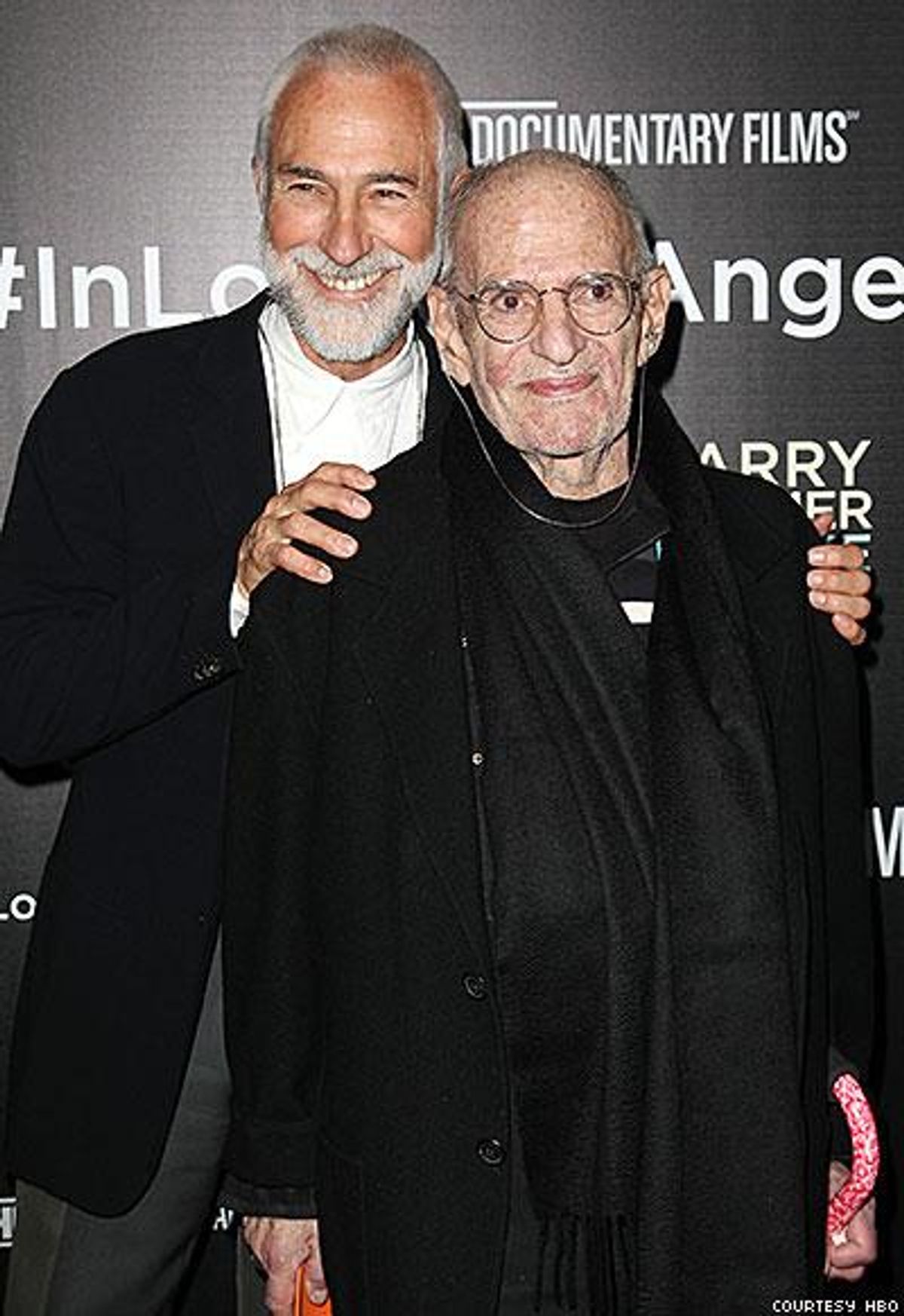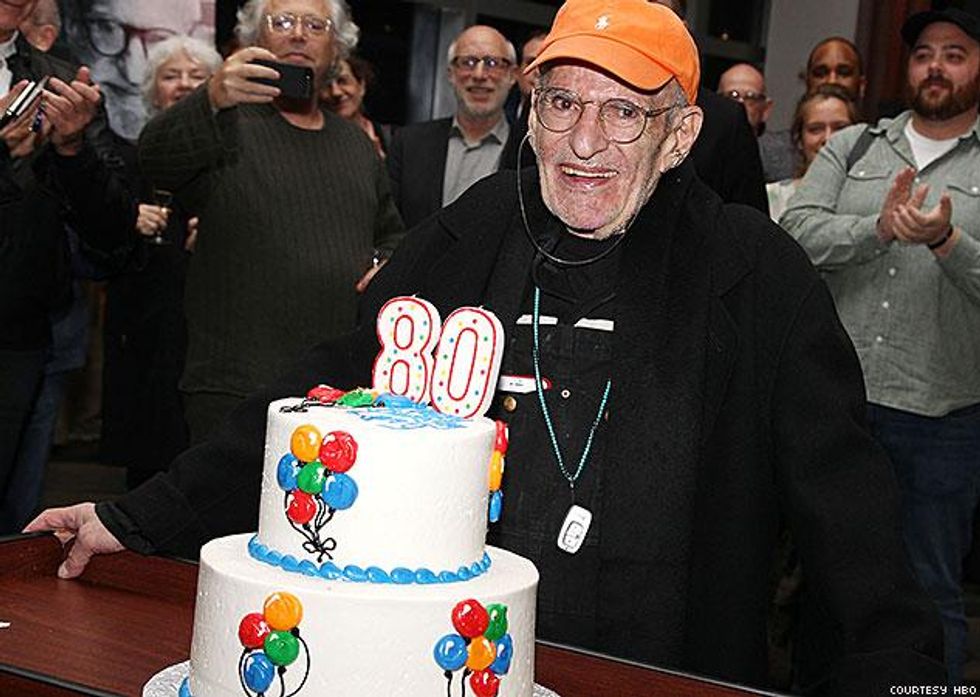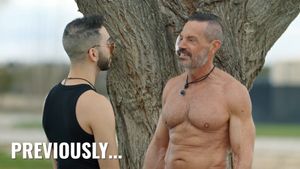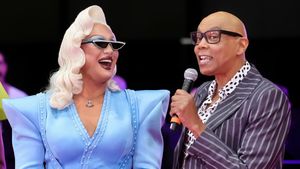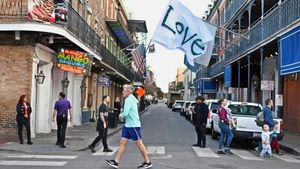"Success is not final, failure is not fatal: it is the courage to continue that counts." — Winston Churchill
Jean Carlomusto provides a compelling chronological portrait of AIDS activist Larry Kramer in Larry Kramer in Love & Anger premiering June 29th on HBO. The film introduces its subject using footage from a 1991 AIDS conference. At that time there had been over 150,000 documented deaths from AIDS. For a few seconds, Kramer seems pensive and unsure, then he uncoils and yells out, “Plague! We are in the middle of a fucking plague. Plague! Forty million infected people in the fucking plague, and nobody acts as if it is.”
Less than 90 seconds into the documentary, this snapshot embodies the qualities — uncompromising vulgarity, righteous anger, and pathological directness — that made Kramer an instrumental figure in the American fight against AIDS. In the midst of the AIDS epidemic, these qualities made him a champion. Late in the movie, former National Institute of Health’s head of AIDS research, Dr. Anthony Fauci, states, "There's medicine before Larry Kramer, and then there's medicine after Larry Kramer."
Outside of a crisis, these qualities combine into a flawed and not terribly likable person.
The first quarter of the movie introduces Larry Kramer. It details his experience as a young gay man and the animosity he felt toward his father. He was a successful writer who received an Academy Award nomination for his adaptation of D.H. Lawrence’s novel Women in Love for the 1969 movie of the same name. In 1973, he was the writer for musical remake of Frank Capra’s Lost Horizon. The movie was a critical and commercial flop. Kramer was paid very well, however. With the help of his brother’s investment of the money, that payoff gave Kramer financial independence.
In interviewing his friends, Carlomusto hints at Kramer’s self-centered prickliness. After setting the background for its protagonist, Larry Kramer in Love & Anger erupts, documenting Kramer’s controversial 1978 novel, Faggots. The book chastises the New York gay male scene of the late seventies as hedonistic. This moment exposes one of Kramer’s most distasteful personal qualities. When convinced of his moral superiority, Kramer has an almost psychotic sense of righteousness and lack of empathy.
At one point, in talking about the book and the gay scene of that period, he says, "Look, people can do whatever they want — they just then don’t have the right to say—‘It should have been better.’ Because they have not done a fucking thing to make it better. They can’t wake up at 60 years old and say 'Oh- poor me, why have I never fallen in love? Why do I not have anything now except a lot of broken memories?' Fuck it, you made your bed, you laid in it, in the mud of Fire Island, in the meat rack, you got what you deserve."
As the AIDS crisis hits the gay community, viewers understand how Kramer's sense of righteous conviction becomes a necessary political trait. This is also the strongest part of the film. Carlomusto changes the mood of the movie to reflect those times. The editing becomes much more frenetic, and the contemporary news clips and harrowing images almost appear random. Finally, the director frustrates the viewer by overwhelming them with facts, but not tying them together until close to the end of the segment. This creates a sense of frustration and bewilderment. In doing so, she creates a way for the viewer to understand the need for an activist group.
The Gay Men’s Health Crisis (GMHC) was formed organically by Kramer and friends out of an absolute need. As the epidemic was establishing its foothold, increasingly basic services — from having fecal matter cleaned off their beds to finding a funeral home — were being denied to gay men with AIDS. The organization was needed in response to a public attitude summed up by a deputy mayor who said, “Don’t talk to me about 300 faggots who fucked each other to death.”
For about 20 minutes, Carlomusto takes the viewer on a roller coaster ride of moments of great pathos with spikes of outrage.
Kramer (below) celebrates his 80th birthday party at premier of the film

Early on, Kramer used his skills as a writer as pseudo-warning siren about the oncoming storm. In 1983, he published "1,112 and Counting," which begins, “If this article does not scare the shit out of you, we’re in real trouble.”
The essay was sadly prophetic. In the 10 years after the essay was published, almost a third of a million people had died from AIDS complications and Kramer had a painful split from the organization he originally started. He retreated to London and began work on The Normal Heart, a landmark play that he was able to get produced on Broadway and decades later would become a huge hit on HBO.
On March 10, 1987, Kramer gave a speech at New York's Gay and Lesbian Community Center calling for a civil disobedience movement to protest the failure of politicians to address the AIDS crisis. This was the beginning of AIDS Coalition to Unleash Power, known best as ACT UP. At this moment in the film, we are introduced to Anthony Fauci, who was the subject of an open letter where Larry Kramer wrote, “I call you murderers, an open letter to an incompetent idiot, Dr. Anthony Fauci, of the National Institute of Allergy and Infectious Diseases.”
Fauci becomes a pivotal character in the movie. In an attempt to empathize with Kramer, Fauci says that Kramer needed a person to represent the entirety of the federal government and that he became that face.
Carlomusto uses this relationship to illustrate a quality that the rest of the movie kind of dances around. There is an inherent irony to Larry Kramer. He is a singularly unforgiving and uncompromising person. Yet, in large part due to this personality, being forgiving and compromising was essential to being a friend of Kramer. It also leads to a second irony: When Kramer tells filmmakers that Fauci was awful in the beginning of the AIDS crisis, but he got better. The movie infers that the same thing can be said about Kramer.
After the release of Faggots, he was unapologetic and condemning. After going through the AIDS crisis and contracting HIV himself, he seems to have matured. At the end of the movie, Carlomusto includes footage from Kramer addressing LGBT young people in New York. The essential message he delivers is essentially the same as when he was discussing Faggots. Promiscuity and sexual recklessness are more demeaning than liberating. But his tone changes considerably, and he replaces the vulgarity and anger with empathy and concern.
Larry Kramer in Love & Anger shares a quality with its main subject. The movie also has two different tones. The last minutes of the movie seem oddly out of place with the rest of the movie. The movie tells of his 2013 wedding to David Webster, which took place in the intensive care unit of NYU Langone Medical Center (a setting that reminds viewers of a similar scene in The Normal Heart).
And he discusses a book about gays in America, which has now been completed. For the first time in the movie, Carlomusto softens the depiction of Kramer, which is in contrast to the rest of the movie. Dealing with the first appearance, escalation, and partial resolution of the AIDS crisis, the movie is grounded in numbers and details. Outside of this period, the movie tends to infer far more than it states. And much like its powerful protagonist — it's the AIDS crisis, from the outbreaks in the early 1980s to the release of the first protease inhibitor in 1995 —that gives the documentary uncompromised clarity.
Anthony Merino is an art and media critic in N.W. Massachusetts.
